
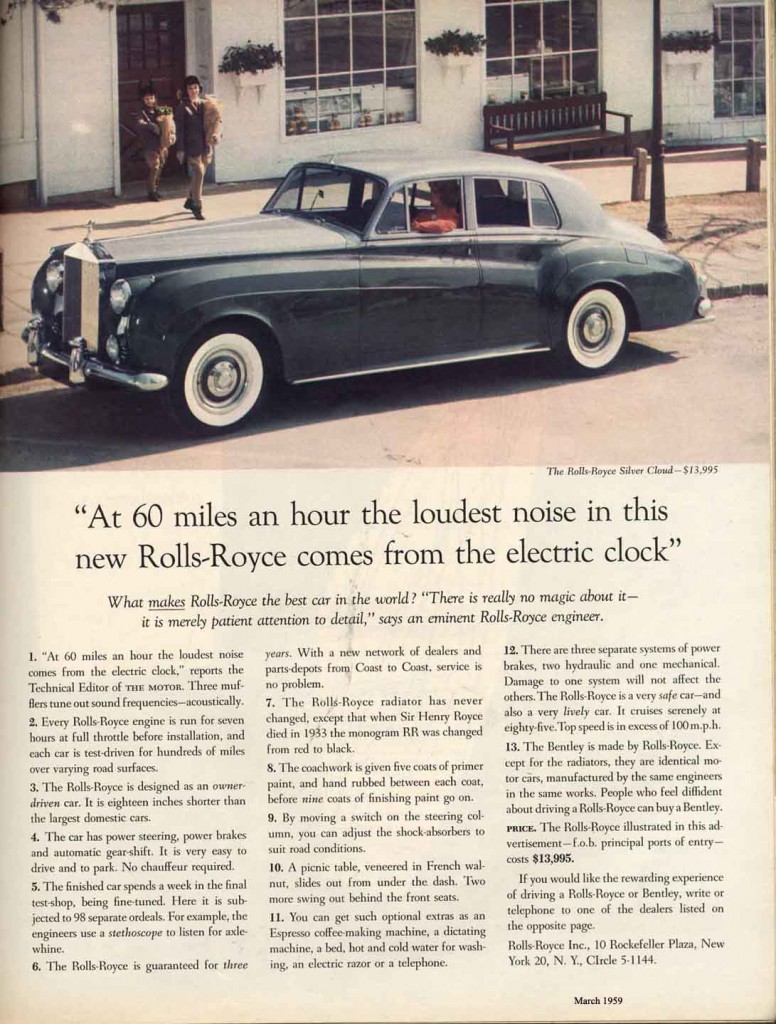
The Bouncer Of The Brain...
"It takes a big idea to attract the attention of consumers and get them to buy your product. Unless your advertising contains a big idea, it will pass like a ship in the night. I doubt if more than one campaign in a hundred contains a big idea." --David Ogilvy
Who was the greatest marketer of all time? Depends how you measure.
I would vote for David Ogilvy. The hit TV series Mad Men and character Don Draper is based on Ogilvy. I was just reading through Confessions of an Advertising Man and Ogilvy on Advertising. If you own a business your bookshelf should have everything the man ever wrote.
Ogilvy was a genius.
My favorite was the ad campaign he built for Rolls Royce which started by saying: "At 60 miles an hour, the loudest noise in this new Rolls-Royce comes from the electric clock."
His ads had a way of getting into your head. He got your guard down and then slipped his idea in. That is what you have to do to sell.
Logic is expensive...
I was just reading a fascinating text book by the evolutionary psychologist Dr. David Buss…He says that thinking takes a lot of energy.
Scientific American agrees, "Although the average adult human brain weighs about 1.4 kilograms, only 2 percent of total body weight, it demands 20 percent of our resting metabolic rate (RMR)—the total amount of energy our bodies expend in one very lazy day of no activity."
"Resting metabolic rate" simply means that even if you lay in bed all day and don't move a muscle, your brain is still burning tons of fuel.
Because thousands of years ago it was hard to find enough food every day (our great, great, great, great grandparents had no grocery stores), we humans have developed a simple system to conserve that energy.
Your brain and your customer's brain does NOT do much logical thinking. It conserves glucose by continually guarding the amount of complex concepts that get sent to the higher neocortex part of our brain.
We all think we are logical, but we aren't. We can be logical when we want to but in an average day we will mostly sit back and rely on raw instinct.
Why do you think you jump in your seat when you are watching a horror movie? You know logically it's not real. But your fear instinct doesn't.
Big Chris...
When it comes to business, I think of it this way. Your customer's brain has a nightclub doorman, a bouncer, living inside it.
That bouncer is strict. Not much gets past him.
I used to own nightclubs. I had forty bouncers who worked for me. The biggest of them all was "Big Chris. Chris is an ordinary guy - except that he is 7'2" (218 cm.) and weighs about 450 pounds (205 kg.).
When he walks in the room people notice. Not many people messed with Chris. He stood at the door behind the velvet ropes and let in who he wanted and booted out everyone else. That is the secret to a good nightclub.
The Studio 54 Story...
In Michael Eisner’s book, Working Together he talks about the guys who owned Studio 54, the biggest nightclub in history.
And what was the key to their success? A bouncer named, Marc Benecke.
Marc would stand outside and point into the line, “Go home you are ugly.” or “Get out of here you don’t belong.” Check out this picture of a typical line outside the door and the bouncer picking who gets in. Crazy haha:
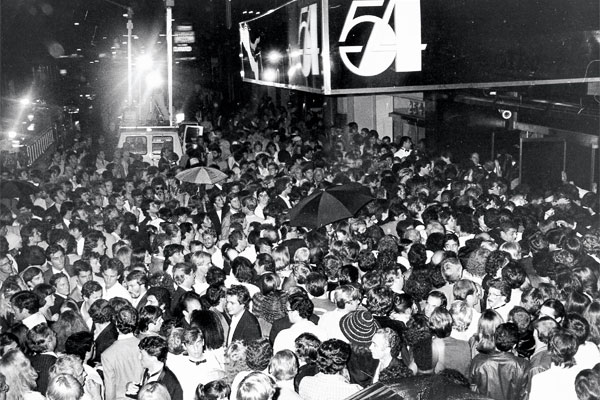
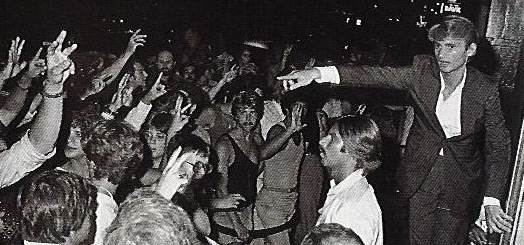
Although you could say that Marc the bouncer wasn’t the nicest guy, he was the key to an amazing club.
The hard truth is that your customer's mind is even pickier than Big Chris or the Studio 54 Bouncer. Don't think for a minute that your mind or the mind of your customer is any different.
If you think you can just walk up to the nightclub of the brain of your customer and breeze by the bouncer, I can pretty much predict that the income of your business is going to be low.
Mother Nature thinks that pickiness is the secret to a well functioning brain. The average person sees over 2,000 advertisements each day.
The human brain has wisely evolved to screen most of them out so we don't get information overload. If you want to build a profitable company you better hope your advertisements are not the ones getting screened out.
Make Friends With The Bouncer...
As a business owner, that 'brain bouncer' has the power to make you broke. But make friends with him and you can become a very rich person...Here are some of the ways to get past your customers 'brain bouncer' and sell more of your stuff:
1. Stop Using Multisyllabic Words.
Ogilvy taught: "I don't know the rules of grammar... If you're trying to persuade people to do something, or buy something, it seems to me you should use their language, the language they use every day, the language in which they think..."
Pretend that your customers 'brain bouncer' is dumb, I mean REALLY dumb.
My bouncer friend Chris has a college education and is smart. He is the exception to the rule. The average bouncer is not the sharpest tool in the shed.
You will stump him by marketing with words like “superfluous” or "opacification".
2. Would Your Grandma Understand?
I like "the grandma test." My grandma is 96. She doesn't like things that confuse her.
The other day she was like "Tai, what is an iPhone?" haha...If your grandma doesn't understand it, neither does your customer's brain. Keep saying things to your customers like: “I help customers leverage the value of social media to push their business into new paradigms of six sigma optimization...”
And you are well on your way to being broke.
3. Do Not Lead With Logic.
If you are trying to sell something that requires people to initially think deeply, it's not going to sell.
Focus on the first sentence, the headline.
David says:"On the average, five times as many people read the headline as read the body copy. When you have written your headline, you have spent eighty cents out of your dollar."
Think of it this way. A catchy hook brings them in and then after you can use logic to keep them there. In the modern world people are EXTREMELY DISTRACTED.
The average person at work checks their email 30-40 times an hour, every 1.5 minutes!
Pull them in fast. Be catchy.
4. The 'Take vs. Give' Ratio.
Your website and marketing should scream, give, give, give. Follow a 3 to 1 ratio.
For every time you ask for someone to buy something give them three other things. Inform them, entertain them, make them laugh, encourage them, warn them, befriend them...
Go easy on your CTA - call to actions. Tell your customer all about the benefits you are going to bring into their life. Stop talking about how your product works. Tell them what it will do for them.
As Ogilvy taught, "A good advertisement is one which sells the product without drawing attention to itself."
5. Talk In The 2nd Person:
“Do not address your readers as though they were gathered together in a stadium. When people read your copy, they are alone. Pretend you are writing to each of them a letter on behalf of your client.-- David Ogilvy
Check out this hilarious comedian Brian Regan:
Do NOT become the 'Me Monster.' Remember if you are in a crowd and yell out a random name like "David" every David in the room will turn around.
100% conversion rate. Nothing else will get that response rate. So do not say "I" or "me".
Say "you" or "your" a lot.
6. Be Creative
David taught, "If it doesn't sell, it isn't creative."
The last thing the world needs is another stupid car commercial.
Go somewhere new with your idea. Be Seth Godin's, "Purple Cow."
Make sure you read a minimum of a book a week.
In the Millionaire Mentor Academy system I teach that books give you the raw ingredients to 'stir' in your mind.
If you don't feel creative it's almost always because you aren't reading enough.
7. Tell Fireside Stories.
Ogilvy says, "I have a theory that the best ads come from personal experience. Some of the good ones I have done have really come out of the real experience of my life, and somehow this has come over as true and valid and persuasive."
He was right.
Biologists know that our ancestors didn't have TV or books. They sat around the fire under the stars and told each other stories.When I lived with the Amish for 2.5 years I noticed how much they were fascinated by a good old story told around a fireplace.
Harvard professor Steven Pinker says in How The Mind Works, "There is no mystery to the question 'Why do people enjoy fiction [i.e. a story]?' It is identical to the question, 'Why do people enjoy life?' When we are absorbed in a book or a movie, we get to see breathtaking landscapes, hobnob with important people, fall in love with ravishing men and women, protect loved ones, attain impossible goals, and defeat wicked enemies."
Your customers want a story. Their brain doesn't have to work hard to process a story. Even in real life, bouncers love stories.
Years ago I was in Denmark with my friend German. We were staying at this hotel in Copenhagen and wanted to go out and party but had no idea where to go.
The valet at the hotel said go down the street and turn down a little alley. Little did we know we were getting into. He sent us to the most elite club in Denmark. Gorgeous blonde Scandinavians everywhere.
We saw everyone going in the front door so we innocently walked right up. The bouncer closed the ropes and said, "You guys aren't on the list. Bye."
Me and German stepped back and regrouped. I said, "Hold on, let me try something." I walked back to the bouncer and I told him a story.
I said, "Hey man we're from the US, I own nightclubs in the US (which was the truth). I am traveling around the world touring all the best clubs to get ideas (which was slightly true - a bit of a stretch of the truth ha). Anyway we can get in?"
And he just smiled and said, "Yeah man come on in." That is the power of a good story. Tell the right story and your customers will let their guard down and pull out their wallet and buy what you are selling.
8. Research, Research, Research.
David wrote, "Advertising people who ignore research are as dangerous as generals who ignore decodes of enemy signals."
Most business owners are too proud. They come off humble but if you watch their actions they do the opposite.
But the saying goes, "The meek will inherit the earth" and "Blessed are the poor in spirit, for theirs is the kingdom..."
The most profitable business man of all time, Sam Walton, made $150 billion for himself and his family by being the most meek and humble.
He said that he had walked the aisles of more stores than any store owner in the world.
Humble entrepreneurs research.
They realize they aren't the center of the universe. Research more before you market. Find out what people really want, not what you are selling.
9. Inform.
"The more informative your advertising, the more persuasive it will be."
Ogilvy said this because he realized that in a world full of boring ideas, whoever said something informative would stand out.
I go all day trying to find something informative. Hardly anything qualifies. People and businesses are lazy.
Teach and train your customer with fascinating concepts.
10. No Nudist Buddhists - Be Congruent.
"Every advertisement should be thought of as a contribution to the complex symbol which is the brand image."
He means that you must start with the central thesis. What does your brand stand for? Then work backwards from there. Make sure every color of your website, word you write, video you shoot, idea you push, matches exactly with your central thesis.
Steve Jobs made Apple's central thesis beautiful electronics that run smoothly. The shape of the iPhone, the Mac, even the layout of their stores never conflicts with this central thesis.
Figure out your central thesis and stick to it in every pitch you do. The old sales quote is true, "A confused mind says no."
Remember, even if the logical mind of a customer understands what you're selling, if the instinct part is confused it shies away.
A good sales funnel takes advantage of the "consistency bias." Lead your customer step by step down the path to buying, never sending mixed messages along the way.
Be a luxury brand or a mainstream brand not both. Be a super expensive brand or budget brand but not both. Be a fun brand or a serious brand but not both.
My favorite saying goes, "You can be a nudist and people will think you are normal. And you can be a Buddhist and people will think you are normal. But you can NOT be a nudist Buddhist. It's too weird."
Don't let your message to customers get off of your core message.
11. Got Jokes?
"The best ideas come as jokes. Make your thinking as funny as possible."
As I prepare for my TED talk this month I am researching the best TED talks of all time.
Sir Ken Robinson's talk on education has gotten the most views. Watch it, it's FUNNY! It's literally 80% jokes and 20% content.
I need to get funnier :)
12. Avoid My $28 Million Dollar Mistake.
"Never stop testing, and your advertising will never stop improving."
I once did a split test for a sales funnel in a company I'm invested in. The winning results told me something depressing. If we had tested 5 years earlier and found the winner sooner we would have made an extra $28 million dollars.
If you think you test a lot now, multiply it by ten. That will be about the right testing intensity.
13. Big Ideas.
"It takes a big idea to attract the attention of consumers and get them to buy your product. Unless your advertising contains a big idea, it will pass like a ship in the night. I doubt if more than one campaign in a hundred contains a big idea."
Ogilvy wrote this before Seth Godin wrote Purple Cow.
The world is afraid. The amygdala part of the human brain controls fear and basically is the big bad 'bully' of our thoughts.
Your customers want a savior. Big ideas save people. So come up with something big.
I once read a political analyst who said that in his research of who wins the US Presidential race it's always the candidate who most acts like the "Moses" character in the Bible.
Intellectuals like Joe Lieberman don't win. Strong leaders who promise 'salvation' win. Promise your customers to save them from some problem in their life.
One of the smartest business partners I have told me, "Tai if people aren't buying from you, you aren't promising enough."
Promise something big and then deliver.
14. Flag Them Down.
"The headline is the 'ticket on the meat.' Use it to flag down readers..."
Ogilvy continues, "On the average, five times as many people read the headline as read the body copy. When you have written your headline, you have spent eighty cents out of your dollar."
Want to know some of the best headlines of all time?
Next time you are the grocery store look at the tabloids. Those writers are the best at grabbing your attention. Subscribe to Cosmopolitan or Vogue or The Enquirer just to learn how to market.
Also using handy Google.com I found these:
- HOW TO WIN FRIENDS AND INFLUENCE PEOPLE
- THE SECRET OF MAKING PEOPLE LIKE YOU
- HOW A NEW DISCOVERY MADE A PLAIN GIRL BEAUTIFUL
- WHY SOME PEOPLE ALMOST ALWAYS MAKE MONEY IN THE STOCK MARKET
- HOW I IMPROVED MY MEMORY IN ONE EVENING
- IS THE LIFE OF A CHILD WORTH $1 TO YOU?
Get good at writing headlines. It's Marketing 101. I make my staff print out the list of the top 100 headlines of all time and pin them to their wall to look at every day.
Good headlines will make you wealthy.
15. Native Ads.
"There is no need for advertisements to look like advertisements. If you make them look like editorial pages, you will attract about 50 per cent more readers."
Those ads in magazines that look like articles but say "Paid advertisement" sell a lot of products everyday.
That's the idea behind product placement in movies. I saw World War Z with Brad Pitt the other month and the scene where he blatantly drinks a Pepsi before fighting zombies cracked me up.
But it works on the subconscious. It's called the association cognitive bias. When ads are 'associated' with real stories, articles, and content we trust them a little more.
The Google guys and Mark Zuckerberg are making billions by nestling advertisements into the news feeds and search results and making them look almost identical.
You should do the same. Just don't be cheesy about it.
16. Be Specific.
Speaking in generalities won't get anyone excited. Excited people buy. Bored people move on and shop elsewhere.
If you get a text from your friend that says, "Man I am having a bad day." You might feel sorry for your friend.
But if your friend says, "I am having a bad day. My wife just ran off with the milk man and I got run over by a school bus" you will write them back in a hurry.
Describe colors, use first names, use words that conjure up the imagination.
A famous study by Davis and Mcleod in 2003 found that humans remember a handful of key specific themes: Death (accidental or natural), murder, assault, robbery (loss), reputation (gossip), heroism, altruism, marital issues, harm or injury (health), abandonment, taking a stand, and fighting back.
Tailor your marketing message with specific words around specific themes like these.
17. Sell To Only The 18%.
Ogilvy says, "...flag down readers who are prospects for the kind of product you are advertising."
Notice he doesn't say flag down all readers. I teach a business principle that I coined called the law of 18%.
Market in a way that out of 100 people who hear about your customer 82 of them leave but 18 of them get obsessed.
Even the great conqueror Genghis Khan didn't try to conquer the whole world overnight. He picked his battles.
Be like Jack Welch, the most famous CEO ever, who said focus on the niches that you can be #1 or #2 in and forget the rest.
Market in a way that people either love you or don't ever want to hear from you.
18. The Magic Blend.
Success in almost anything is like a good beef stew. It has more than one ingredient. Not just beef, not just broth, not just vegetables. A little of all in just the right ratio.
This is the lollapalooza effect in persuasion the billionaire Charlie Munger always talks about.
In his speech at Harvard University in June 1995 Munger gives an example of why you should never go to an auction, "The... auction is just made to turn the brain into mush: you’ve got social proof, the other guy is bidding, you get reciprocation tendency, you get deprival super-reaction syndrome, the thing is going the other way… I mean it just absolutely is designed to manipulate people into idiotic behaviour."
Munger is saying that an auction has a magical blend of persuasion elements too strong to resist.
Watch this Ogilvy ad for gasoline from the 1950's. Notice how many elements of good marketing he has incorporated into it's own lollapalooza effect.
It tells a story, it's specific, it informs, it's congruent with the brand, it gives you something, it's visual, visceral, and my grandma would understand it.
I want to find that gas somewhere haha. The bouncer in my brain was definitely convinced.
19. Kill Cliches.
Say things people have NEVER heard before.
I always tell my staff I have a simple goal for the articles I write. I want people to always walk away saying, "Tai said something I never heard before."
Kill cliches before they even leave your mouth.
20. Fear The Drop Off Point.
People get bored easily. Every boring word is a potential drop off point. You could write 10,000 beautiful marketing words but if even one sentence is cliche, boom they are gone without reading all the other good stuff.
21. Make It Available.
I can't tell you how many times I consult for a business that wants to make more money and my diagnosis is "It's too hard for clients to buy from you."
The bouncer in your customer's brain wants things easily available. Psychologists call this the availability bias.
It's one big reason people eat crappy food at Mcdonalds. Because it's so easy to buy. Make sure your website has the buy button ALWAYS visible on the top.
Make sure you clearly tell people what they are buying and the price.
Frank Woolworth founded Woolworth's. When he died he was so rich that his net worth represented 1/1214 of the whole US economy!
What was his secret?
"He pioneered the now-common practice of fixing prices on items, rather than haggling. He was the first to use self-service display cases so customers could examine what they wanted to buy without the help of a salesman."
Notice what he did. He made it AVAILABLE to the brain quickly.
Check the font of your website, of your emails. Hire random people from usertesting.com and have them check that what you are selling is easily available.
COMMENTS
Best of Tailopez
-
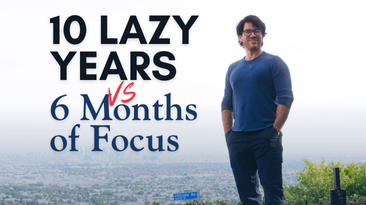 Ten Lazy Years Can Be Erased With Six Focused Months
Ten Lazy Years Can Be Erased With Six Focused Months -
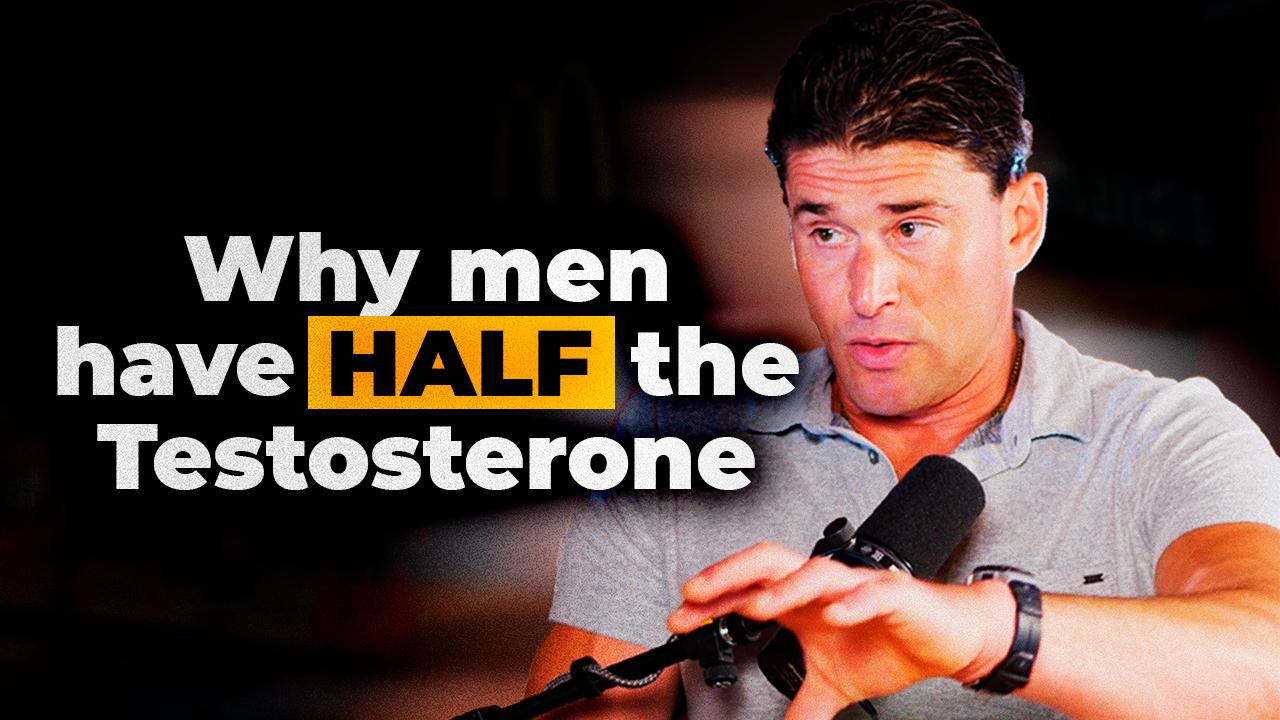 Why Men's Testosterone Is Half Their Grandfather's with Ben Greenfield
Why Men's Testosterone Is Half Their Grandfather's with Ben Greenfield -
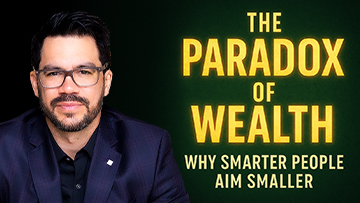 The Paradox of Wealth: Why Smarter People Aim Smaller
The Paradox of Wealth: Why Smarter People Aim Smaller -
 Mamma Mia in West Adams: Tai Lopez Finds LA's Pasta Holy Grail at Cento Pasta Bar
Mamma Mia in West Adams: Tai Lopez Finds LA's Pasta Holy Grail at Cento Pasta Bar -
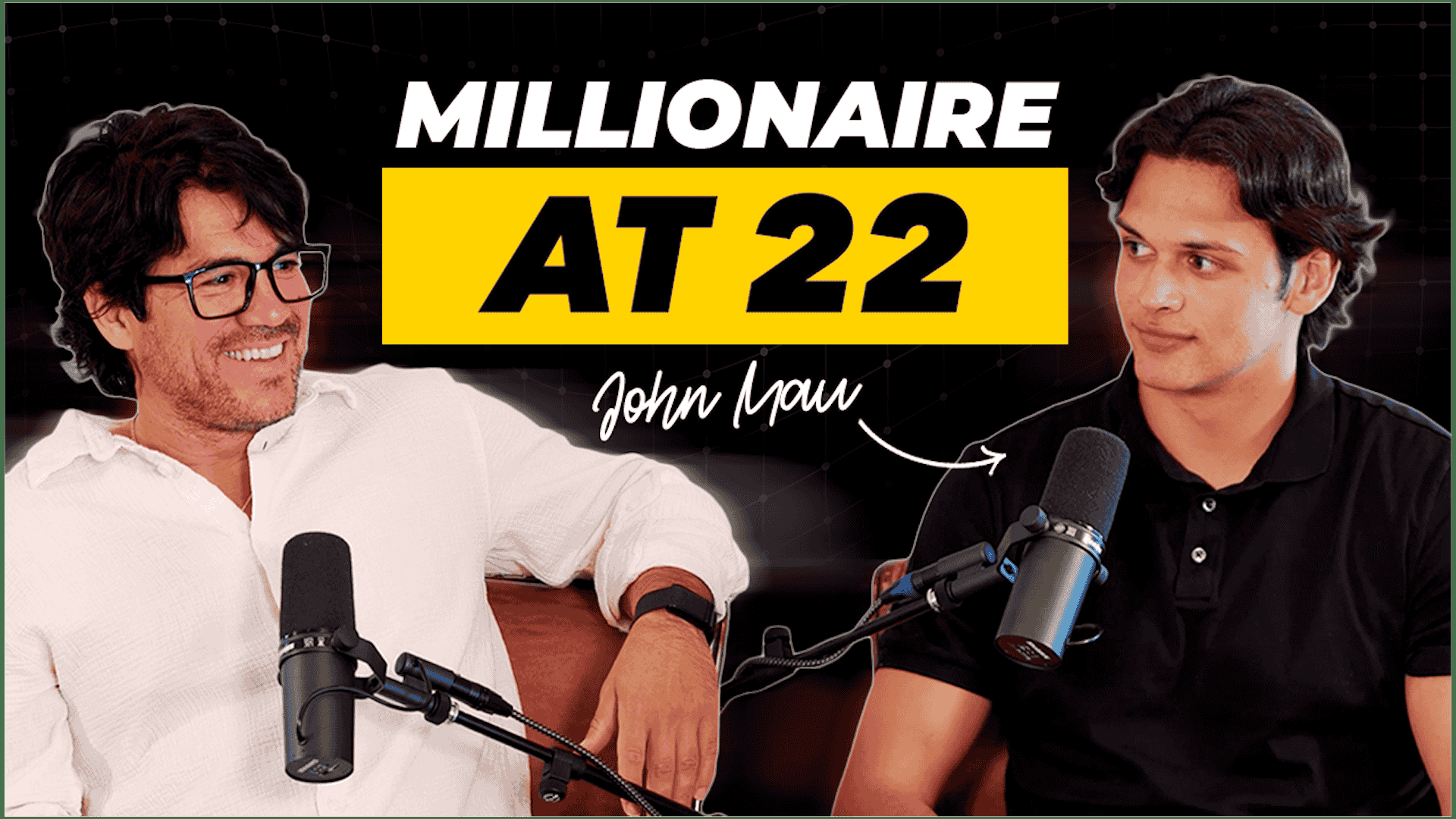 Sales Training, Scaling, and Breaking Objections: Tai Lopez with Johnny Mau
Sales Training, Scaling, and Breaking Objections: Tai Lopez with Johnny Mau


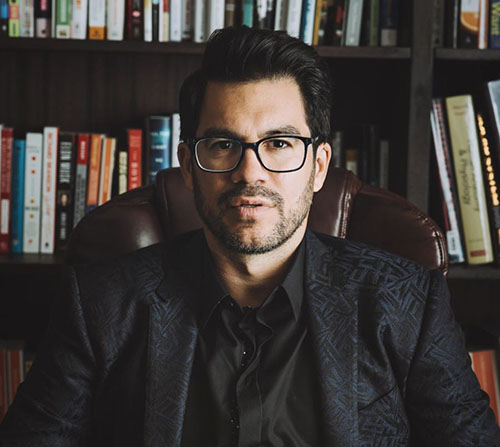
0 Comments